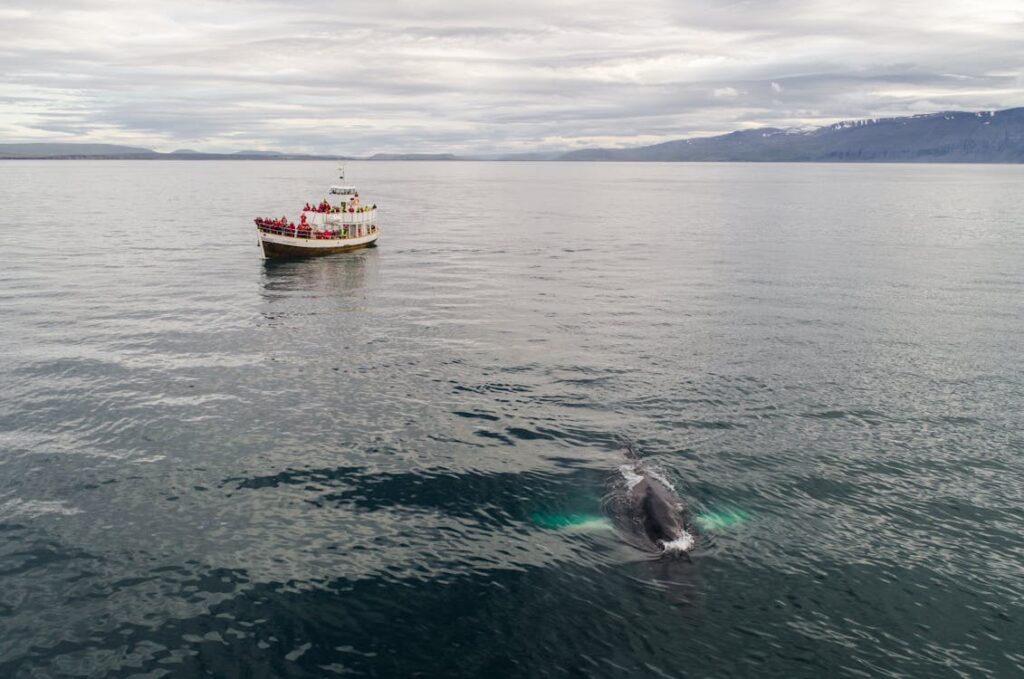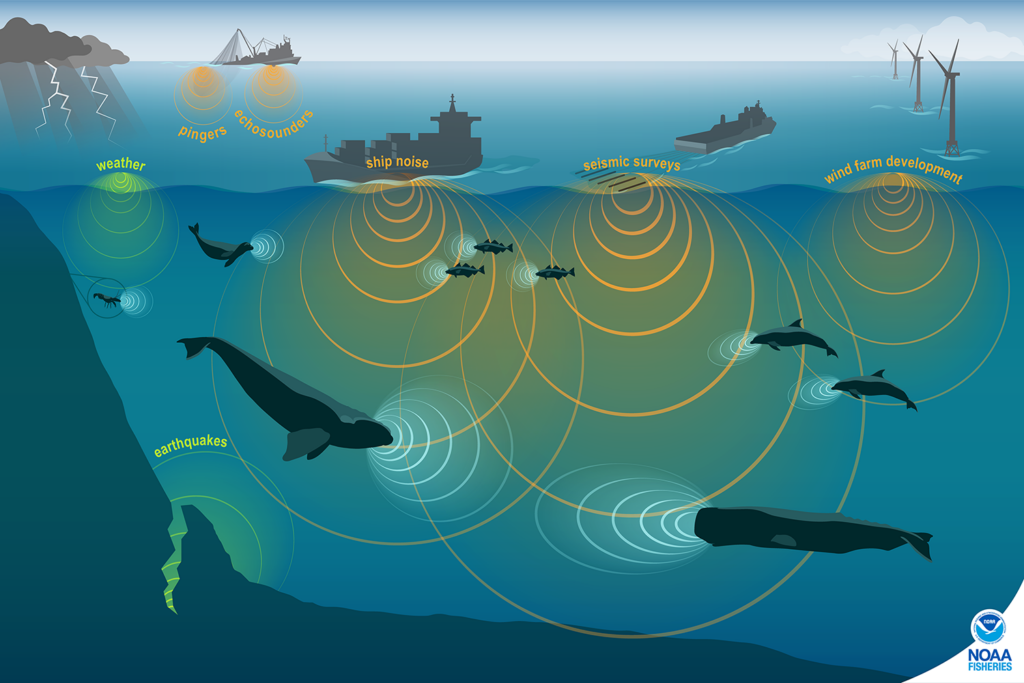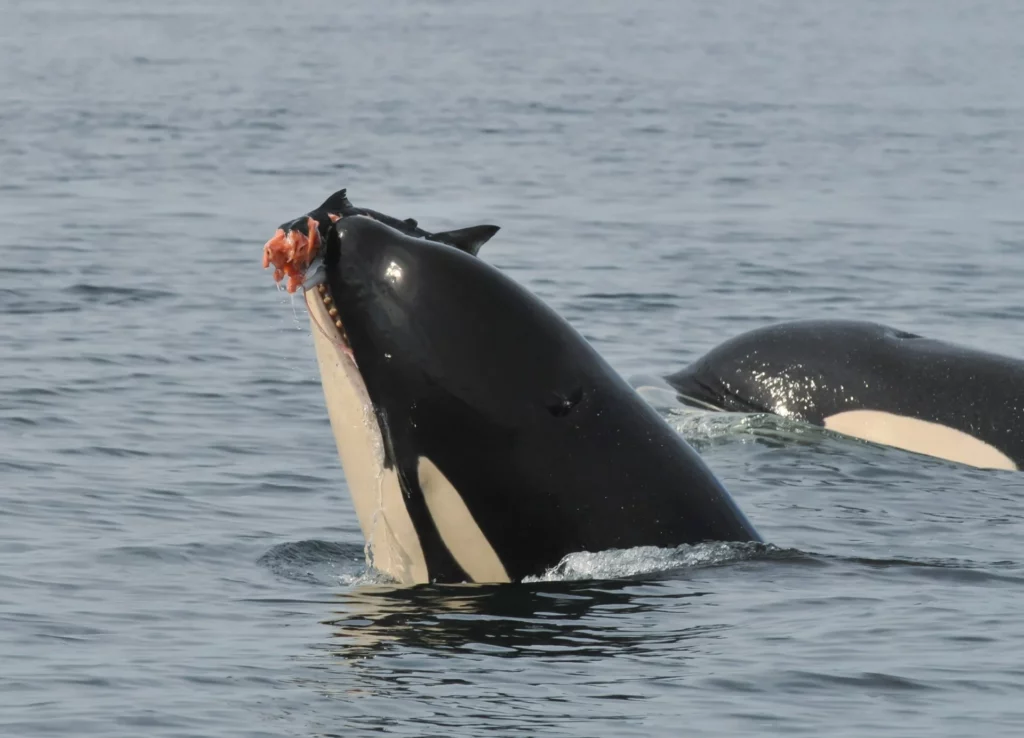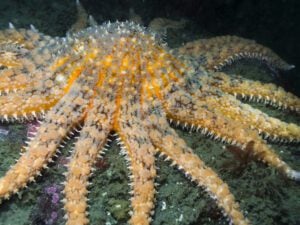
The federal government has announced the first draft of Canada’s Ocean Noise Strategy, a program initially announced in 2016 and promised for 2021, with the deadline for an action plan now being pushed to 2025.
Conservation organizations praised the draft as a first step–but called for immediate action as the plan is developed.
Canadian Fisheries and Oceans (DFO) says its strategy will aim to balance the need to manage the harm of ocean noise to marine life and coastal communities with industries like shipping, seafood harvesting, and recreation.
Underwater noise can “cause behavioural disturbances and sometimes fatal injuries to marine animals” or cause cultural and economic impacts on coastal and Indigenous communities, noted DFO. Managing underwater noise “requires a balance of marine environmental conservation and social and economic considerations.”

The DFO document noted that previous attempts to tackle noise pollution “have often been in response to threats to a particular species or driven by the need to assess and manage specific development projects.”
The strategy includes 20 recommendations, primarily aimed at understanding and managing the impact of ocean noise. Included are case studies of actions like notices to mariners to avoid marine protected areas and community-based programs that monitor noise in local areas.
Organizations that have called for years for government action on noise pollution said they will participate in the process.
Oceans North called it “a positive step.”
“Addressing this threat will require listening to and learning from the people who are most affected—as well as taking concrete actions to manage it,” said Kristin Westdal, science director of Oceans North, in a statement.
The strategy is “an important step forward,” responded the World Wildlife Fund, but added that the action plan “won’t happen fast enough to protect endangered marine species” and called for urgent action to immediately reduce underwater noise pollution.

“Ocean noise from shipping and other industrial activities drowns out the natural sounds that marine species rely on to communicate, navigate, feed, and care for their young, leading to stress, displacement, injury and fatal whale strandings and ship strikes,” said the response from the World Wildlife Fund. “This draft strategy provides a much-needed roadmap to begin addressing these impacts.”
But the WWF added that the draft recommendations “lack clear direction on how and when Canada will determine, implement and enforce critical pieces like noise thresholds and limits, area-based noise targets and regulatory review.”
The strategy’s next step is public consultation, from now until October 22, and development of a Federal Action Plan, due in 2025.
You can find Canada’s Ocean Noise Strategy here: https://www.dfo-mpo.gc.ca/oceans/publications/noise-bruit/strategy-strategie/index-eng.html#2-0
Public engagement on Canada’s Ocean Noise Strategy is open from August 23, 2024, to October 22, 2024. You can visit DFO’s consultation page to learn how to get involved or submit a survey.
Read Strong Coast’s story last June, Noise Pollution Threatens the Survival of Southern Resident Killer Whales, here.




